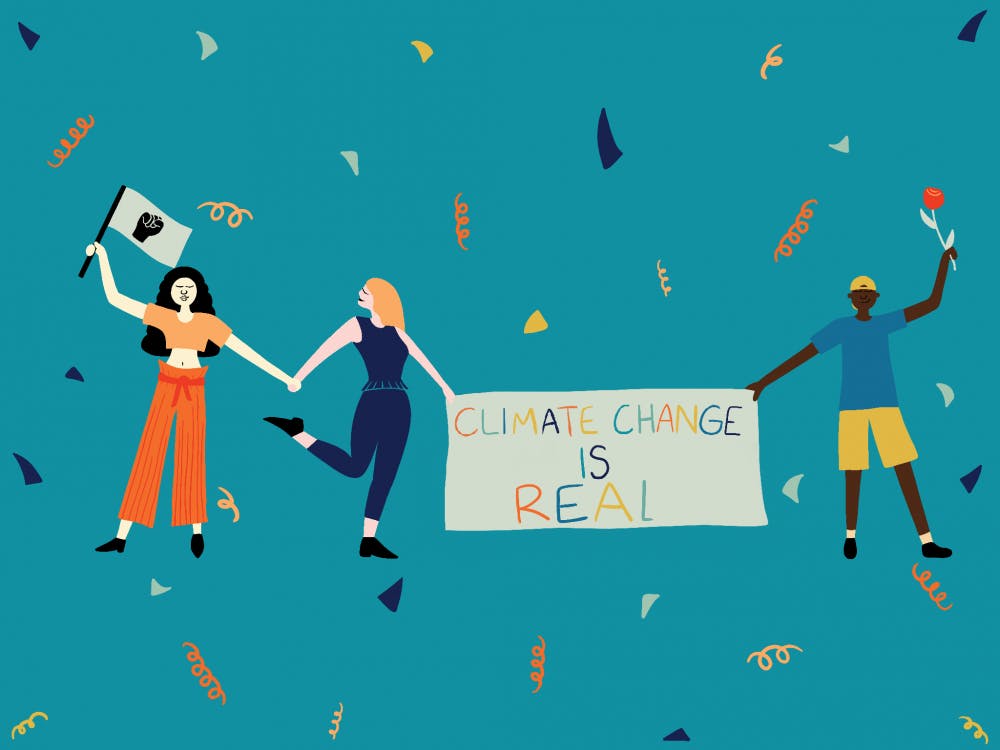The current climate emergency is an immediate existential threat to civilization as we know it. One would expect that in knowing this, the national media would be discussing this nonstop. Unfortunately, this is not the case and not even a five foot summer ice storm in Mexico has changed that.
In the past two decades, public demand has caused most mainstream media to stop giving equal credence to climate change deniers. This is a welcome advancement, but it is definitely not enough. Outlets need to report on the climate crisis with the consistency and the depth that such an emergency requires.
It is too easy for the public to compartmentalize the climate crisis. For every minute of coverage about our dying planet, there are far more covering the Democratic Primary horse race or the general buffoonery of President Trump. The media undoubtedly setting the pace for national discussion is very dangerous when the climate emergency is treated as a sideshow. The data on this is astounding. ABC was recently criticized for having more coverage of the royal baby in a week than they did of climate coverage in an entire year. In 2016, CNN devoted five times more time to showing fossil fuel ads than to actually reporting on climate change.
Public Citizen, a consumer rights advocacy group, released a report in 2018 that showed only 93% of all news stories related to extreme heat never mentioned the climate crisis. Recently the New York Times failed to connect the devastating floods in the Midwest to the climate emergency in all of its coverage.
This behavior is not surprising given the nature of the national mainstream media. As corporations with a primary duty to shareholders, these media outlets strive for spectacle over substance. MSNBC host Chris Hayes admitted climate change is a “ratings killer.”
Under our current system, profits are more important than giving the public a clear picture of the world.
The largest ongoing media event, the Democratic Primary election is failing to address the climate crisis adequately. The only major party that acknowledges climate change has largely marginalized the topic during their presidential debates.
Of the 170 questions asked during the debates, only 10 were about climate change. The questions were poor and half the candidates did not have a chance to weigh in at all.
The debates are run in conjunction with the Democratic National Committee. In defiance of widespread support, the DNC refused to hold a debate centered on climate change because it may give climate-focused candidate Jay Inslee an edge.
This is an absurd concern from an organization whose primaries systematically favor the party favorite. Either way, the chance that a candidate may have good ideas about an important topic is not a good reason to exclude the topic from discussion. Our only hope to influence our political rulers lies with galvanizing wide public support. To do that, we need a national media that treats the climate crisis with the severity it deserves.
Activist groups are already increasing pressure. Extinction Rebellion, a growing global direct action network, proposed a set of guidelines for media to follow in order to accurately portray the climate emergency.
The standards call for climate stories every day and inclusion of the climate in stories that could be tangentially connected. It also calls for companies to drop conflicts of interest with fossil fuel companies and their supporters.
Activists around the world are raising their voices against inaction on the climate emergency. The Sunrise Movement and Extinction Rebellion engage in regular actions in Europe and the U.S. Here in Bloomington, student activists are planning weekly protests during the fall semester.
Media coverage is instrumental in generating widespread public support and outrage. If they continue refusing to treat this as an emergency, then we could miss our opportunity to prevent the worst.






